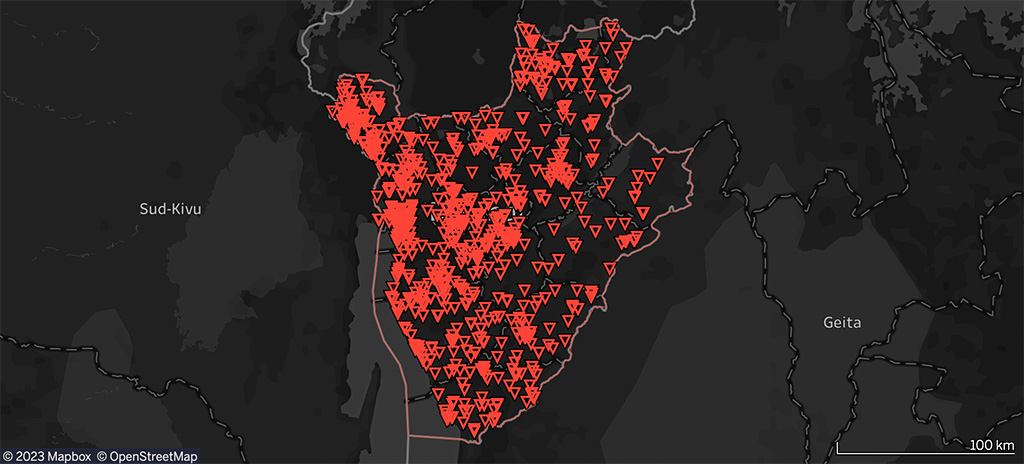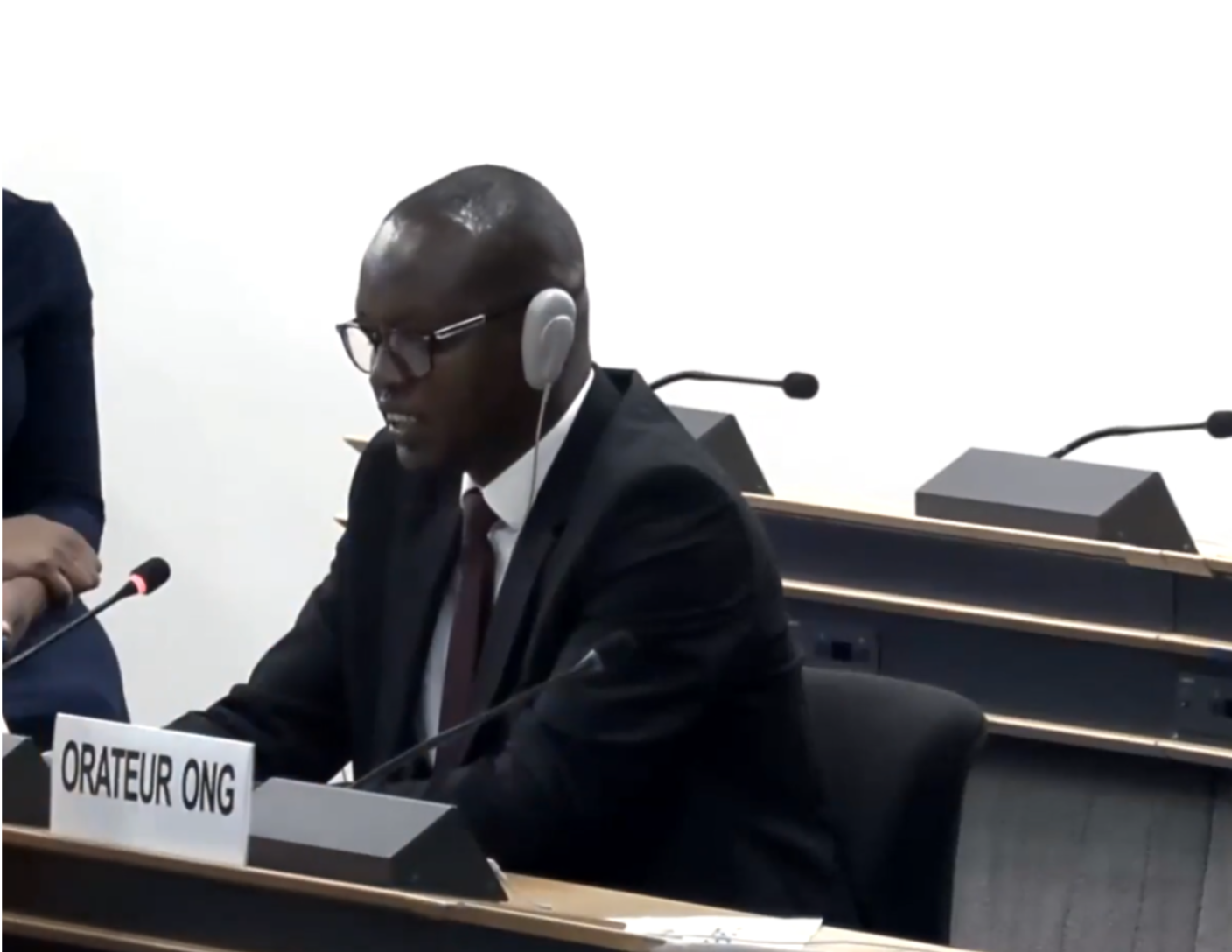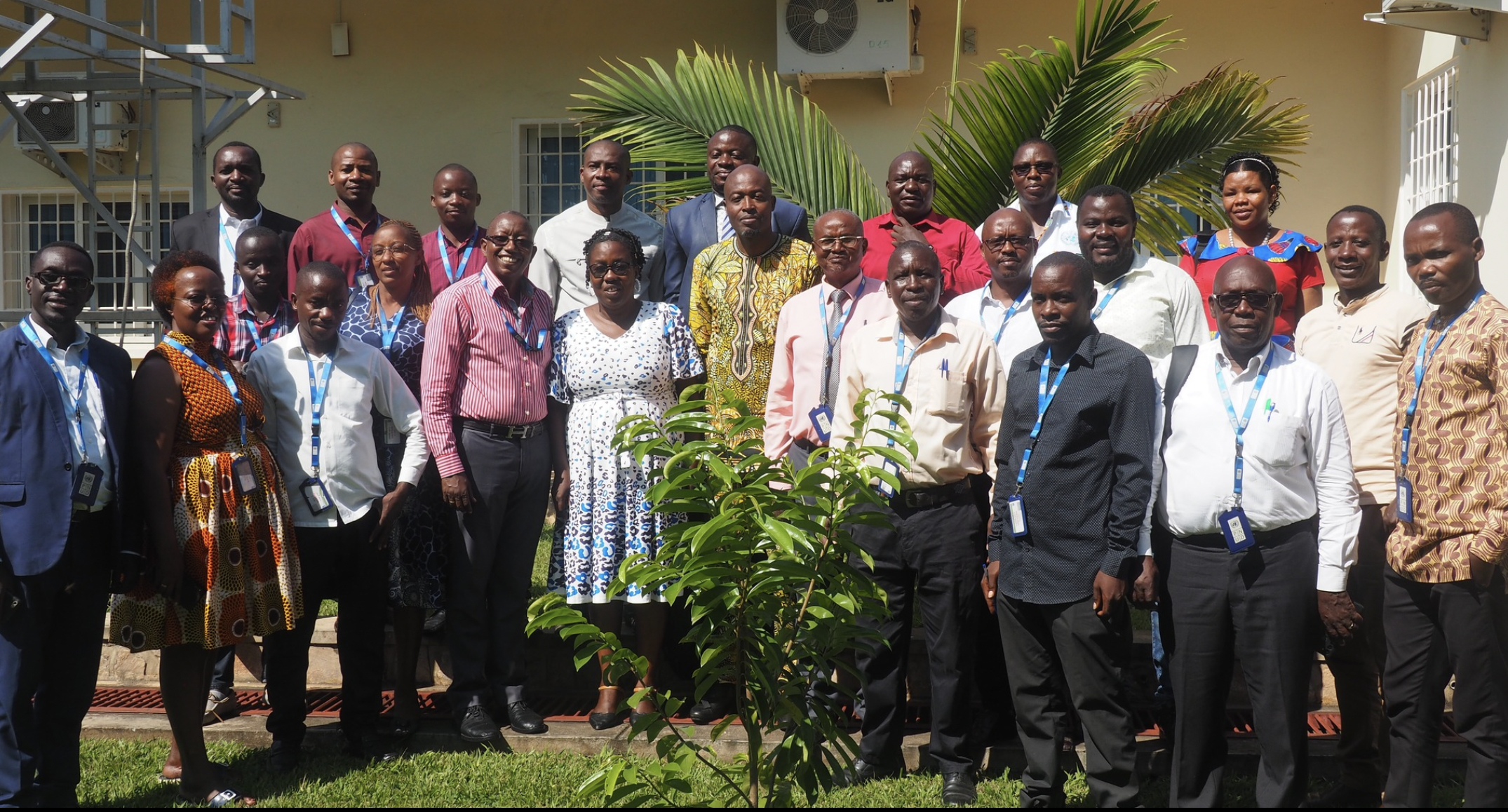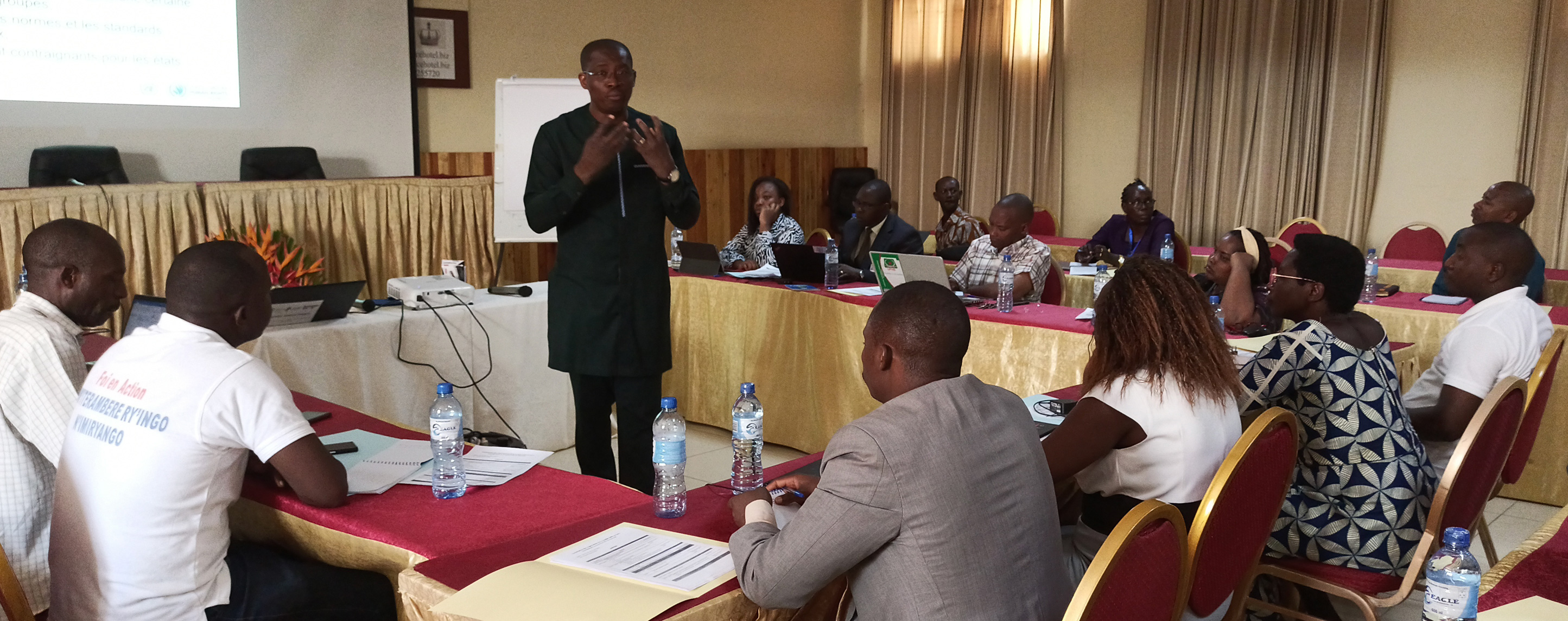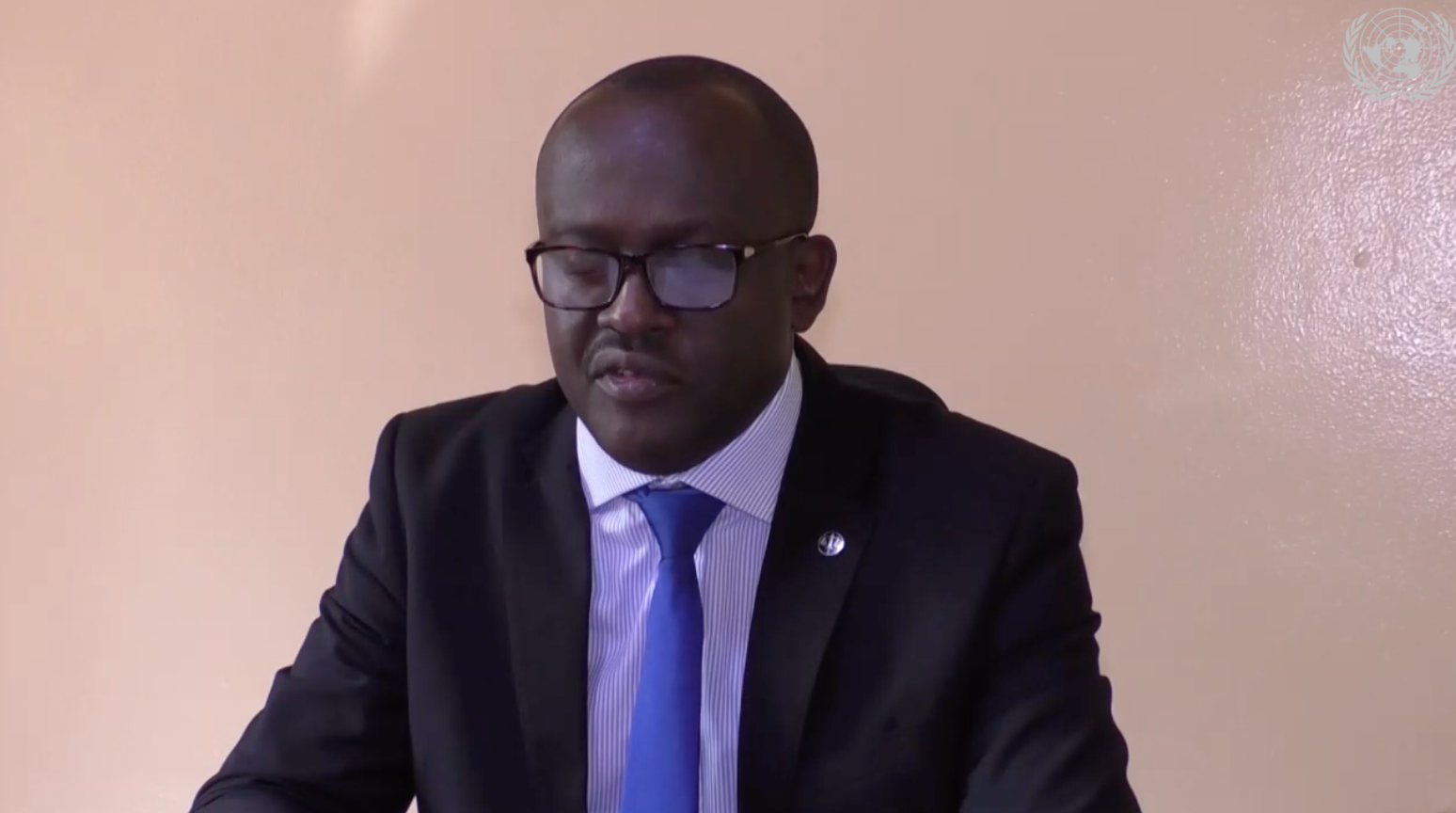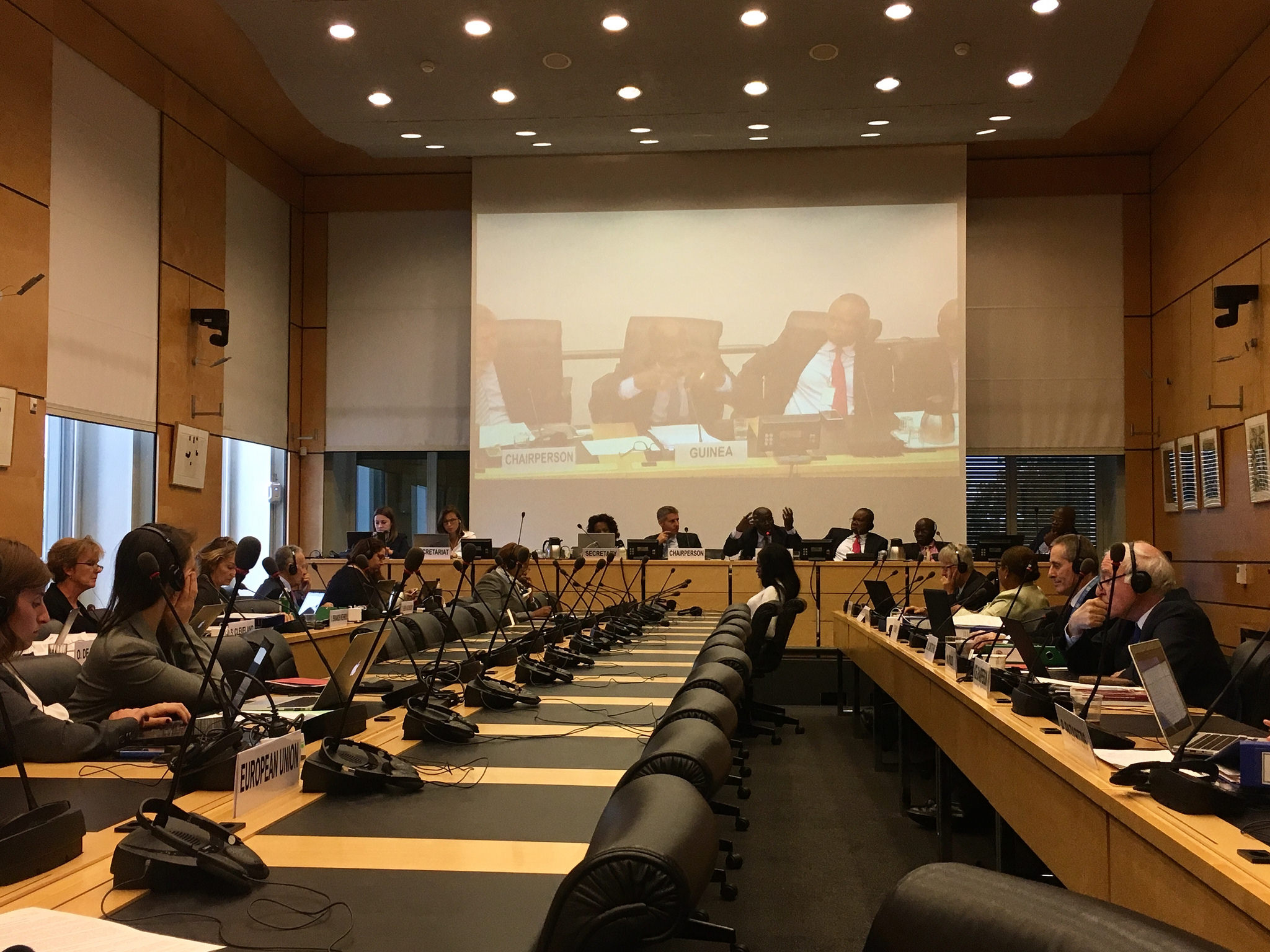Maintaining international attention and fighting impunity: A side event on Burundi
Published on 22 Sep 2025, 10:48 AM
Side event during the HRC60 to maintain international attention and fight impunity in Burundi

On 19 September, the CCPR Centre, together with FIACAT and ACAT-Burundi, SOS Torture, DefendDefenders, World Organisation Against Torture, and other partner organizations held a side event to maintain international attention and fight impunity in Burundi. The event was organised during the 60 th session of the Human Rights Council as it discusses the renewal of the mandate of the Special Rapporteur on the human rights situation in Burundi.
The panel, moderated by M. Jean-Claude NTIBURUMUSI, legal advisor of ACAT Burundi, included:
- M. Fortuné Gaetan ZONGO, Special Rapporteur on the situation of human rights in Burundi
- Ms Aua BALDE, Member of the UN Working Group on Enforced or Unvoluntary Disappearances
- Ms Marie Louise BARICAKO, President of the INAMAHORO movement – Femmes et Filles pour la Paix et la Sécurité
- Me. Armel NIYONGERE, President of ACAT Burundi and Secretary-general of SOS torture Burundi
Ten years after the third term crisis of 2015, Burundi remains in a deteriorating human rights situation. Civil society organizations organized a side event at the Human Rights Council to maintain international attention and advocate for the renewal of the mandate of the Special Rapporteur on the human rights situation in Burundi. The panel brought together international experts and civil society leaders to assess the current situation in the country.
Institutional Deterioration and Electoral Results
Special Rapporteur Fortuné Gaetan Zongo focused on the 2025 elections in his assessment. He had previously examined preparatory events in 2023, noting the weakening of other political parties. The election results produced a monochrome assembly, both upper and lower houses dominated by a single party.
The institutional space has shown no improvement. Various existing mechanisms have deteriorated. The National Human Rights Commission (CNDH) has lost credibility, with its president fleeing the country after a police search of his home, while the judicial apparatus serves primarily an enforcement role. The Ombudsman institution remains timid and fails to assume its mission of protecting human rights.
Resurgence of Violations
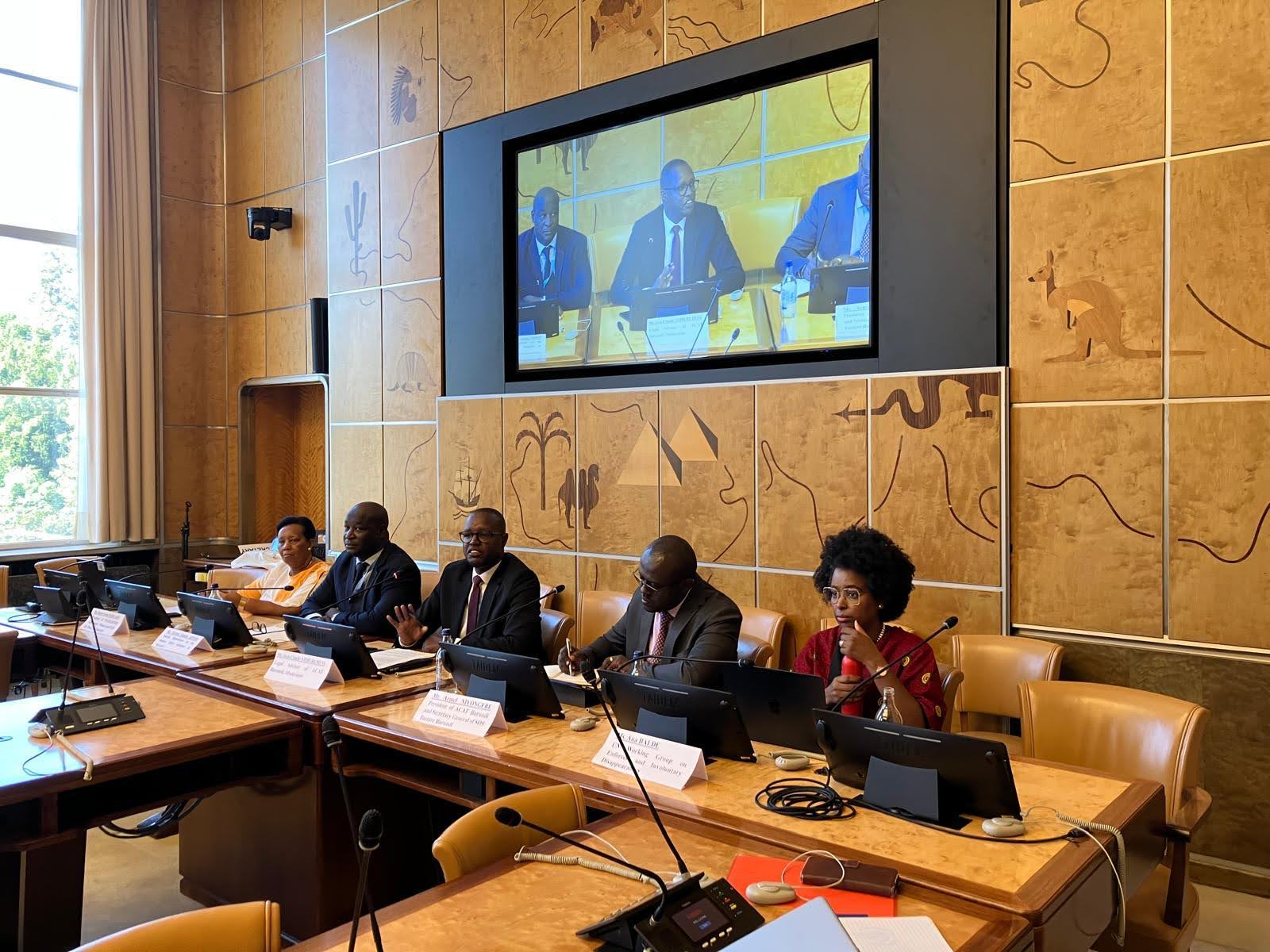
There has been a timid but perceptible resurgence of torture, enforced disappearances, and various abuses committed by state repression organs. Civil and political rights continue to be violated across the country.
Regarding refugees, 400,000 people fled in 2015. Ten years later, half are still outside the country. Reflection is needed to enable their return. Land and property issues affect those who are outside the country and have assets. Their return without consultation could be a source of future crisis.
Economic, social and cultural rights, particularly health and food security, remain critical. One organization reported that Burundi was the world's hungriest country. Burundians accept their fate without having the strength to react.
The Special Rapporteur called for continued support for civil society in exile, stating that the country remains standing because of their existence.
Enforced Disappearances
Aua Baldé, Chairperson of the UN Working Group on Enforced Disappearances, reported that the Working Group has transmitted 256 cases of enforced disappearances to the government. She emphasized this represents just the tip of the iceberg and does not reflect the reality on the ground, as most cases do not reach them due to fear of harassment.
Between 2015 and 2017, they registered 40 cases, though again this does not reflect reality. The Working Group sent a letter of allegation to the government but received no response.
In 2024, the Working Group produced a thematic report on elections and enforced disappearances, using Burundi as one example. The study shows that periods leading up to elections are prone to enforced disappearances. The Working Group is worried as elections approach and people continue to disappear. Sometimes these are 'short-term' enforced disappearances (people reappear after a certain period) affecting election candidates, supporters, and family members. Enforced disappearances occur alongside other human rights violations and might go unnoticed.
Despite attempts to engage with the government through letters of allegation, the government has provided no reply or interaction with the Working Group.
Violence Against Women and Girls
Marie Louise Baricako from INAMAHORO Movement described the crisis that has prevailed since 2015 and continues to deteriorate. Gender-based violence, including rape, has reached unprecedented levels since 2015, with rape occurring openly. This violence has become generalized, aggravated, and continues. It is a crime that is minimized and not recognized as serious by the authorities. This is accompanied by impunity, as perpetrators are not prosecuted. Police officers say it is normal and has always been this way.
Regarding participation in political life, women members of opposition parties face arrest, imprisonment, and intimidation. Violations of the right to dignity affect girls and women who are raped by school directors or teachers. Children are declared as having failed in school because they refused to sleep with their teachers.
In many situations where victims and their families have sought to file complaints, authorities ask families from both parties to reach a consensus.
Violations of the right to education affect girls who are victims of this treatment in schools, causing the country to lose development opportunities. These girls who do not finish school are then sold to Gulf countries where they become slaves. This is known because there is a law authorizing the export of labor.
Burundian leaders should adopt recognition of the crime of rape and violence against women and punish it. Regarding women's inheritance rights, there has been a draft law since 2013 that has never been adopted. The government invokes culture and tradition, but culture is not meant to block progress and is not static. Denying women inheritance rights blocks the country's development.
Ms. Baricako restated the importance to advocate for the eradication of impunity for these crimes and the inscription in law of girls' right to education.
Transnational Repression
Armel Niyongere, President of ACAT-Burundi, explained that since 2015, documentation of human rights violations relies on civil society organizations, human rights defenders, and journalists in exile. Violations have been exported, particularly to Tanzania where many live in exile.
There are three recent trends: First, repression, intimidation, and surveillance against journalists and opponents who are refugees in Tanzania, including summons by police from host countries and deportation to the country of origin, made possible by complicity between asylum country authorities and Burundi.
Second, digital harassment. Speaking from experience, he was targeted in 2016 with an arrest attempt in Tanzania related to a case sent to the International Criminal Court.
Despite this bleak landscape, the panel emphasized that hope persists through the work of civil society organizations operating in exile. These groups, working under constant threat and surveillance, continue to document violations, support victims, and maintain the historical record that will be crucial for any future accountability efforts.
As Burundi approaches another electoral cycle, the international community faces a critical moment. The patterns identified by UN experts suggest that political periods bring heightened risks for enforced disappearances and other serious violations. Without sustained international pressure and support for civil society organizations, Burundi's crisis may well enter its second decade with the same devastating consequences for its people.



